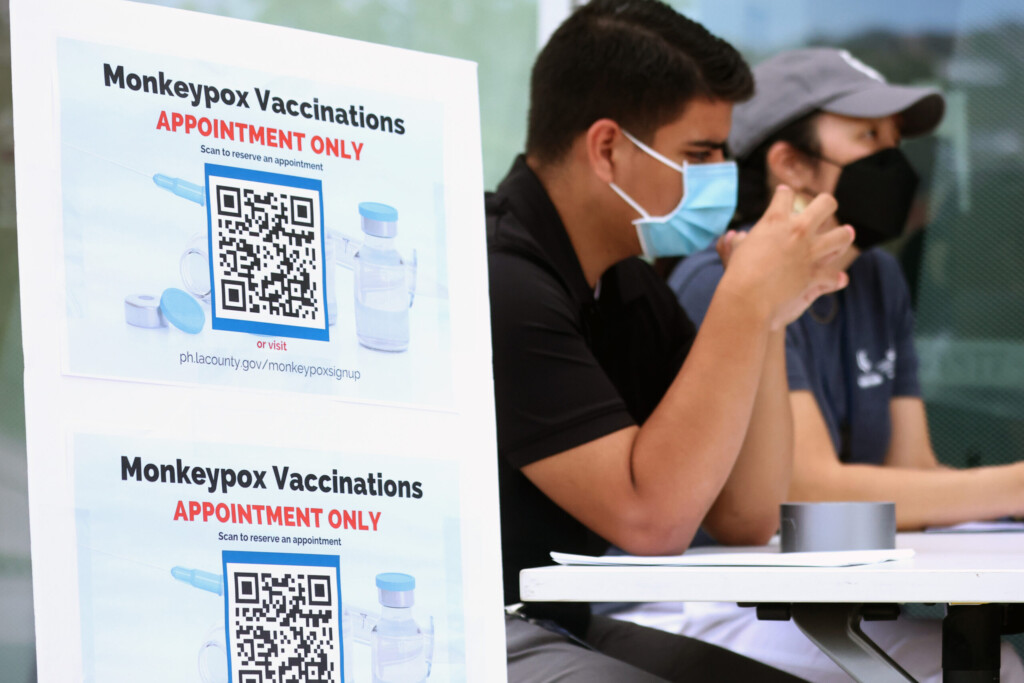White House calls meeting with college officials on how to curb monkeypox on campus

The White House held a virtual meeting with more than 1,000 college and university officials Thursday to help them prepare for a school year when monkeypox cases are expected on campus.
The Biden administration’s monkeypox and COVID-19 response teams, along with representatives from the Centers for Disease Control and Prevention, discussed “best practices and actions colleges and universities should take to curb the spread of” monkeypox as well as the coronavirus.
“Federal officials provided practical guidance on college safety this fall, including strategies for colleges to identify and stop the spread of monkeypox, and answered questions about how to respond to incidents of monkeypox and clearly educate students about vaccines. Tests and treatments,” the White House said in a statement announcing the meeting.
Major public colleges and universities contacted by States Newsroom last week had no significant plans for treating students diagnosed with monkeypox.
There was little clarity on how they would help students in on-campus accommodation isolate themselves if professors were given guidance on how to provide distance learning for students who test positive, or what those who choose dorm or other cramped accommodation should do share when a roommate is diagnosed.
At Thursday’s meeting, federal officials, none of whom were named by the White House, called on college and university administration to also encourage their campus communities to keep up to date on COVID-19 immunizations.
New CDC website
The meeting, with higher education officials whose names the White House declined to include in its briefing, took place on the same day that the CDC announced a new website to provide information about monkeypox specifically for college students.
The website states: “Vaccination is an important tool to prevent the spread of monkeypox. However, given the current limited supply of vaccines, you should make temporary changes to some behaviors that may increase your risk of exposure.”
The federal government’s distribution of the Jynneos vaccine, approved to treat monkeypox and its relative smallpox, has been somewhat slow and lacked the number of vaccines that public health officials would like to get under control.
Democratic Washington Senator Patty Murray, chair of the Public Health Surveillance Committee, this week sent a letter to Dawn O’Connell, assistant secretary for preparedness and response at the US Department of Health and Human Services, asking about the pace of vaccine distribution.
“The government must do more to address existing unacceptable vaccine supply shortages, implement comprehensive distribution and communications strategies, and develop long-term procurement plans,” Murray wrote.
Murray noted that slow procurement “has resulted in an alarming supply shortage of the JYNNEOS vaccine that threatens to undermine the United States’ ability to combat the monkeypox outbreak.”
Public health emergency
Monkeypox began spreading in the United States this year after a Massachusetts man was diagnosed on May 17.
The virus, which is transmitted through close, intimate contact, has since surged to more than 16,600 people in every state. The Biden administration declared it a public health emergency earlier this month.
Monkeypox cases in the United States this year are characterized by a rash or lesions in nearly 99% of people diagnosed, according to the CDC. A majority of people also experienced fatigue, fever, chills, headache, enlarged lymph nodes, muscle pain and itching.
While anyone can contract monkeypox, CDC Director Rochelle Walensky said during a briefing last week that about 98% of cases currently affect men and that “among those with known recent sexual history and sex, 93% of the cases were in men who contact with other men reported recent sexual activity.”
It can take anywhere from two to four weeks for monkeypox to resolve, a time frame that can cause significant disruption in any student who is diagnosed and must be isolated until all of their lesions disappear and are replaced with a new layer of skin.